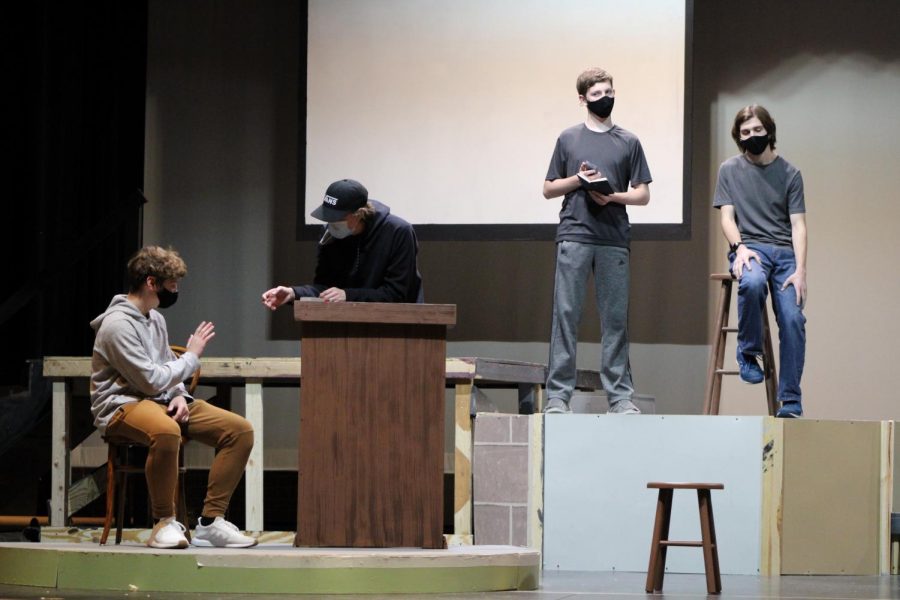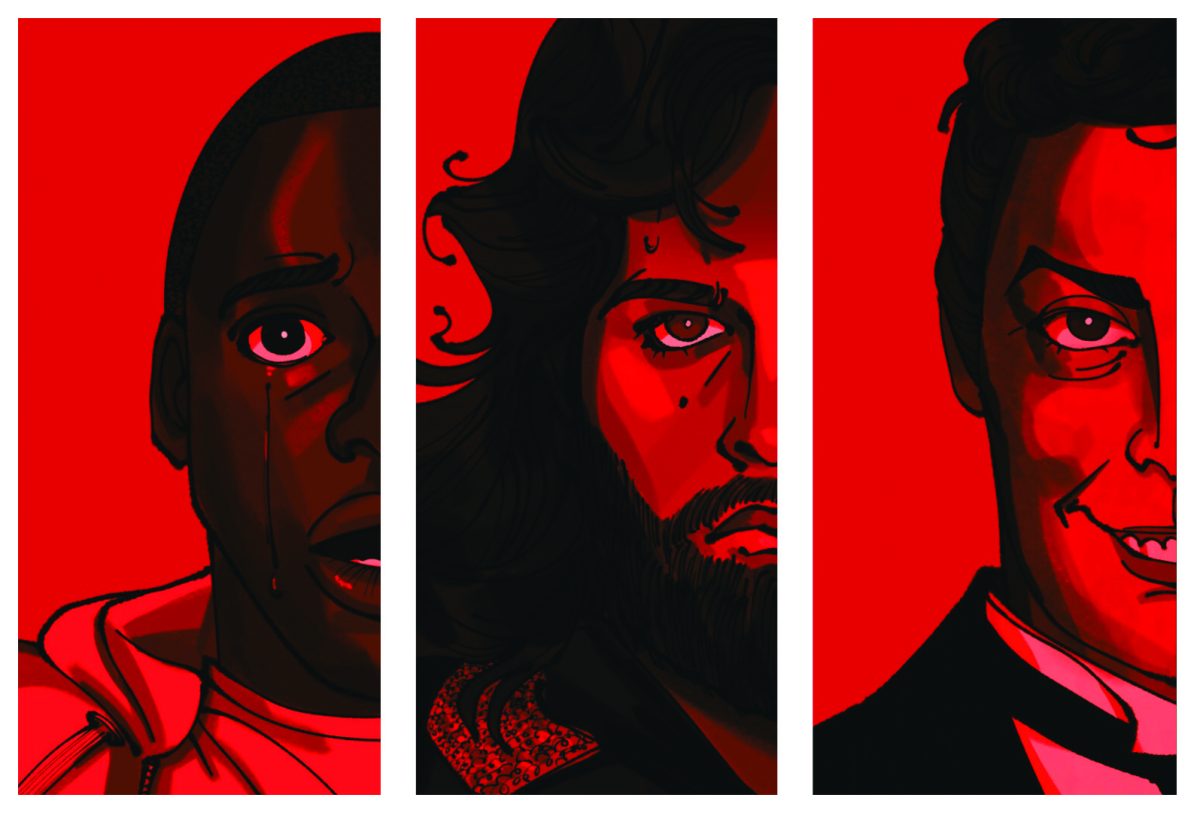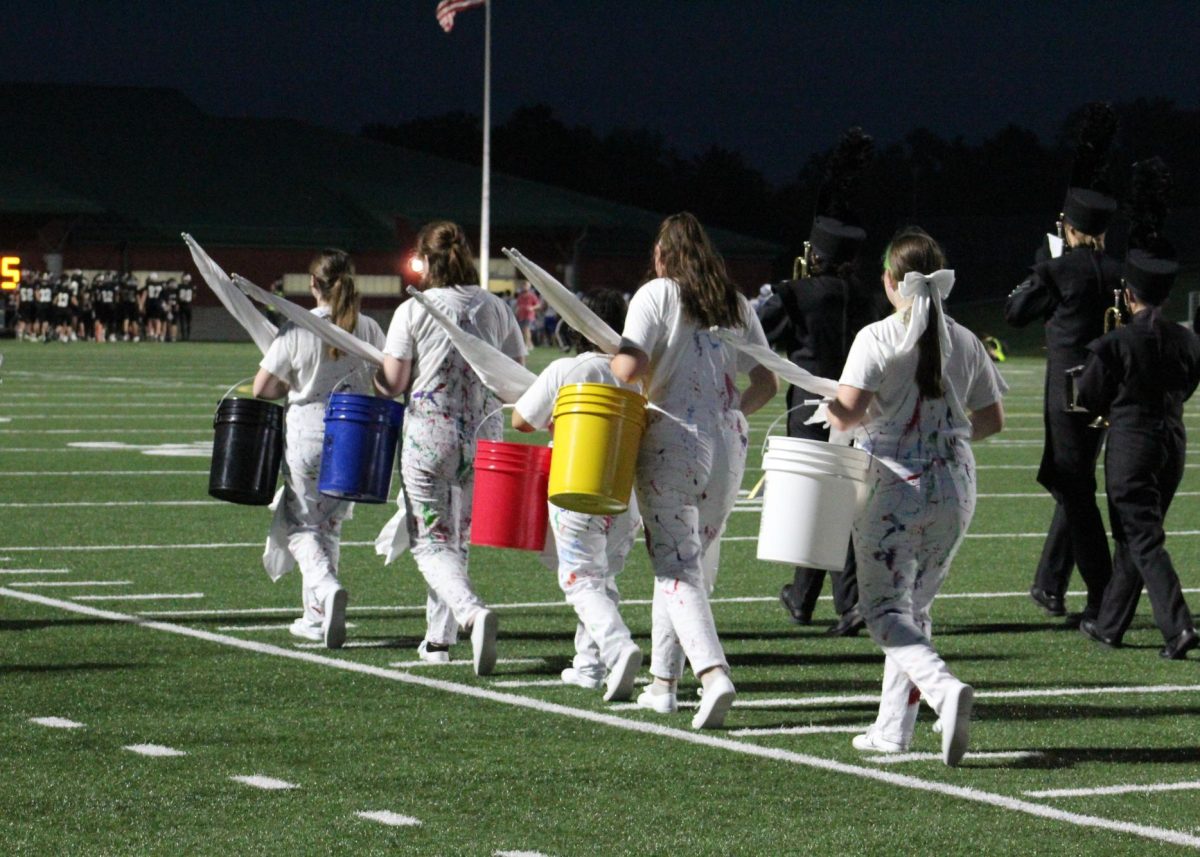The Laramie Project
LSE Theater Department tells the tragic story of Matthew Shepard’s death with the hopes of sparking conversation
December 18, 2021
“[I was] wondering what happened to me. I had a few beers and I don’t know. It’s like I could see what was going on but I don’t know, It was like someone else was doing it.”
These are the harsh words of Aaron McKinney as he describes how he kidnapped, beat, and murdered Matthew Shepard, a homosexual college student in Laramie, Wyoming, in 1998.
The drama department at Lincoln Southeast High School (LSE) will be retelling the story of one of America’s most infamous and tragic hate crimes in its upcoming play, The Laramie Project.
This play tells the story of the true events that transpired in Laramie, Wyoming, in 1998, when 21-year-old college student Matthew Shepard was brutally murdered because he was openly gay. Two men attacked him, beat him, and left him for dead tied to a fence near a field.
According to Theater Director Tyler Lambley, the script for The Laramie Project comes from the Tectonic Theater Project. The Tectonic Theater Project is based in New York City and is guided by founder and artistic director Moisés Kaufman. This group is known for developing their plays through a rigorous process of research and collaboration.
Lambley said that when Kaufman heard about what happened to Shepard, he went to Laramie multiple times and conducted over 200 interviews.
“The interviews focused on people directly involved, people not directly involved, the accused, family members, police officers investigating, people who had direct contact with Matthew, some of Matthew’s friends, [and] Matthew’s teachers,” Lambley said, “All to get their reaction to the story and build a narrative.”
Lambley said that this play is the darkest, most impactful play that the Southeast drama department has performed in a long time. He decided that this year was a good year to learn and perform it because he wanted to give the senior class an opportunity to act in a realistic tragedy.
“It’s a play we could put on this year, to give this group, and whoever’s involved, a chance to be involved in a tragedy,” Lambley said.
Lambley feels that what made this play unique from past plays and musicals that LSE has done is the fact that it’s based so directly off of reality.
“This is the first one where the people who are saying these lines, these are their real words, they are real people, they are still alive,” Lambley said.
This play will be much more research-based than those performed in the past since each event being described by the cast really happened. Lambley says that historical accuracy is key for perfection when it comes to such an important play.
One obstacle students will have to overcome is that some of the character’s political or social views differ vastly from their own, but they still have to play the part.
“Actors play roles with whom they disagree with all the time, and it’s that ability to separate yourself and say, ‘I’m not this person, but I need to be this person on stage, to get the story across in honor of the play itself and the story that we’re telling,’” Lambley said.
Many students are personally affected by this play in particular, or can relate to it on some level. Senior Cole Schilke, an active member of the LGBTQ+ community, says he truly feels a special impact from the show because of its topic. “I feel very impacted from this show since it’s about a hate crime of a gay man,” he said. “It’s very impactful to me because, me and my mom have had talks about, I need to be safe who I’m around, [I need to] make sure I’m by people who actually accept me and know me.”
Despite the heavy topic, Schilke still agrees with the Theater Department’s decision to do this show. “I 100% love the choice. I wholeheartedly respect it,” He said. “The only reason I’m doing this, like, even acting again, is because of the show. I love everything about it. I love what it stands for.”
Overall, this play hopes to make an impact on people and encourage people to think more about the LGBTQ+ community. It does so by telling the tragic story of Matthew Shepard’s death. Lambley said, “I hope that there are conversations that can be had about ignorance versus hate.”









